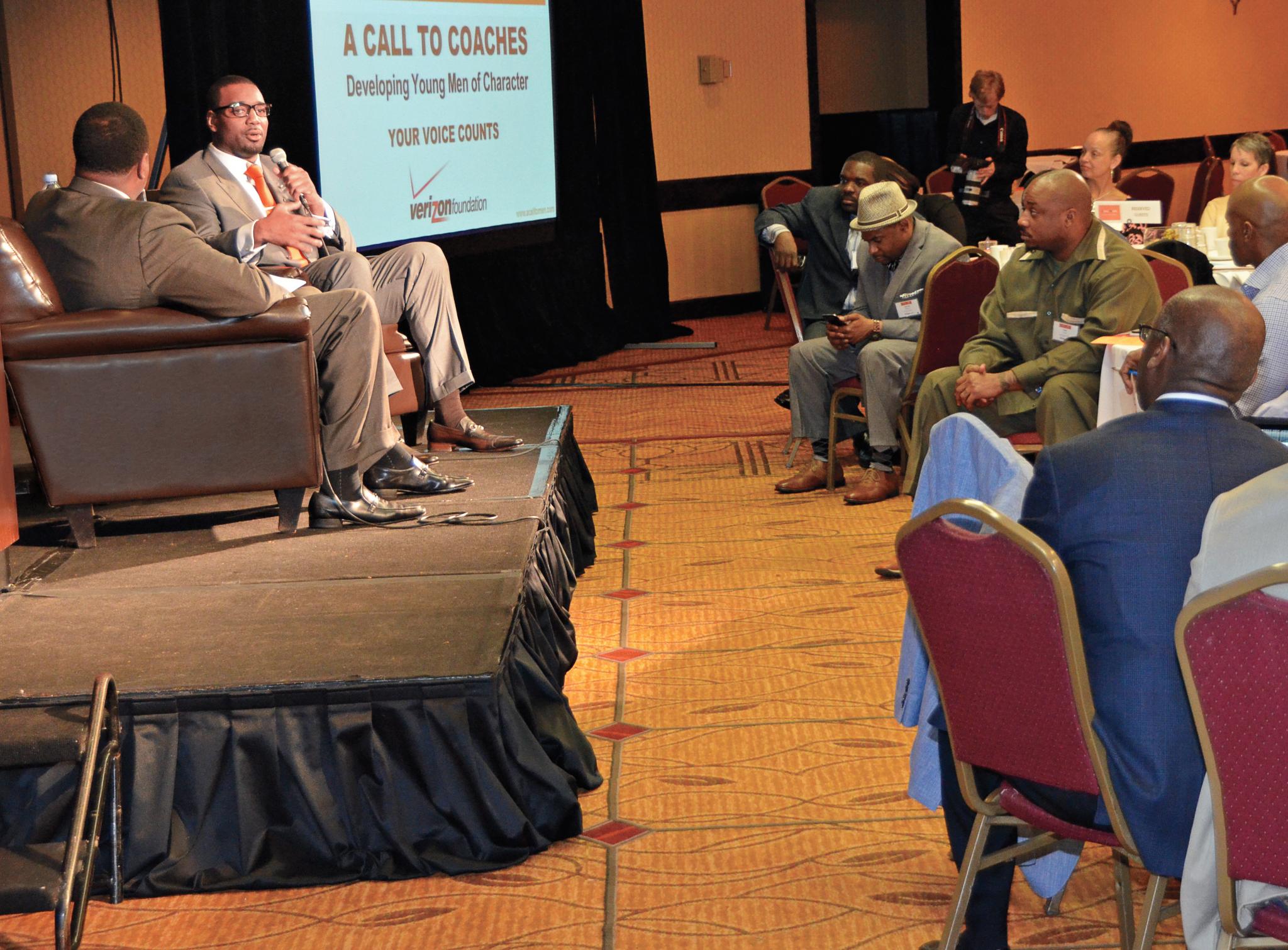
I’m a big guy who hits quarterbacks for a living, so I’m the last person most would expect to teach young men about domestic violence. Despite the messages the culture bombards us with, healthy manhood is about being respectful and caring for others, not solving problems with violence. Three years ago I partnered with the organization A Call to Men to teach young men what healthy relationships and real manhood look like. It’s something I learned from my father, who showed me and my two older brothers what it is to be a man. Because of my stature—I’m 6 feet 7 and more than 300 pounds—talking to young men about the importance of treating people with decency captures their attention. They’re like, Wow, he plays a physically demanding sport and he’s talking about caring for others and respecting them.
I’m a vocal opponent of domestic violence because it hits close to home. I’ve known people trapped in unhealthy relationships, and I’ve seen the violence that takes place in our communities. Last year, when I heard that Kansas City Chiefs player Jovan Belcher had murdered his girlfriend, Kasandra Perkins, then turned the gun on himself, I was shocked and saddened. I was even more alarmed when slate.com reported that 21 of the 32 teams in the league had a player on the roster who had been arrested for domestic violence or sexual assault. While most of the men in the league are good guys, there is clearly work to be done. Domestic violence is not just a women’s issue; it affects us all. Men can’t stay silent anymore.
Some ways we can rid our communities of violence are by creating environments in which men can discuss and process their emotions and by giving them the tools to communicate their feelings effectively. One of the biggest challenges I’ve encountered in my work with young men is teaching them to recognize that anger is a secondary emotion that comes from a place of hurt. As men, we have a hard time saying we’re hurt. It’s often easier, and even more acceptable, to demonstrate anger. Instead of telling a young man he needs to man up, we must teach him to think differently about what it means to be a man.
I was blessed with two awesome parents who showed me what a healthy relationship is all about. My father taught me how to relate to my peers, and my mother raised me to be a gentleman who opened doors, carried bags and treated a woman with the utmost respect. My parents have been married for 42 years, and next May I’ll be jumping the broom as well. Teaching young men to love themselves and others is as exciting to me as sacking quarterbacks and making plays. But if we’re going to put an end to domestic violence and raise a generation of healthy young men, we need everyone to join the team.
If you are in danger, call 911 or the U.S. National Domestic Violence Hotline at 800-799-7233 (SAFE).
For more from the October issue of ESSENCE. Pick up a copy on stands now.




